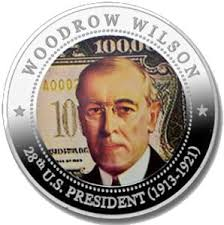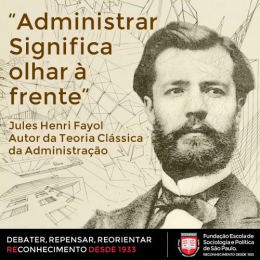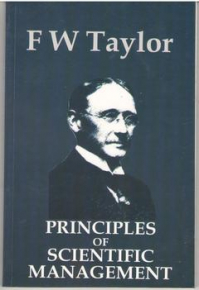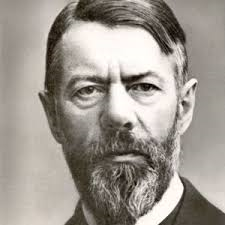
Consulting - Quality
Difference makes the DIFFERENCE
Categorised Menu List
Introduction to Classical Thinkers
(Classical Thinkers - the Power House for all administrative therories flow)
without proper administration, thus leading to choas in the society. Woodrow Wilson called "multitudinous monarch" called Public Opinion.

The following are some of the dominant thinkers, in this period of administration. The following is a very brief overview, just to let know, how the concepts of administration evolved and corresponding shift in thinking.
Classical Thinkers: We cannot move ahead without quoting Thomas Woodrow Wilson (1856-1924, President of USA - 1913). He identifed that before 19th century, people were in manageable numbers and hence no pressing demand for administration, but later on, situation changed and became un-manageable, but by then, French and German administration had strong governance. He forced himself to borrow those principles, but was afraid of cultural impact. so he quoted his

He also aptly identified the inherent deficiency in system and said it is far easier to frame a constitution than to run one. He emphasised that administration cannot be on the principles of philosophy, but on historical and comparative methods of administration. Governance should be seperated from administration, where, Governance basically deals with developing principles of administration and Administration deals with implemnting the principles of Governance. Also, he realised that, every 10 years, there would be demanding change in Governing principles.
Next in the order comes Henri Fayol (1841-1925). The original credit of introducing Scientific methods in Management goes to the Greeks, however, Fayol and Frederick Taylor refined these methods into management practices.
Fayol is the founder of Management Process School. He is greatly influenced by Cartesian Philosophy and Adam Smiths views on Division of Labour.

He deviced 14 principles of management, the principle of 'gangplank' which is level-jumping in heirarchical organisations (simply called skipping the current level). He strongly emphasised 'Unity of Command', which is also called the line of authority and 'Unity of Direction'. He strongly emphasised that authority and responsibility whould be in equal measure, without which the system fails.
Frederick Winslow Taylor (German, born on 20 Mar 1856 - ) is not only considered as Father of Scientific Management but also considered as poineer in Modern Management Techniques and Approaches.
His papers include Art of Cutting Metals, Principles of Scientific Management Piece-Rate System (an outstanding paper among his contributions, helpful in wage payment. This paper is out of his exhaustive experiments of over 30,000, for a span of 25yrs, at about a cost of 2,00,000USD, this paper is revolutionary in the development of American Industry).
He proposed four basic principles of Scientific Management, where he emphasised on close relationship between the supervisor and employee.
- Development of True Science of Work: this can be done by gathering working experience or traditional knowledge, which is his life time capital and his most valuable property.
- Scientific Selection and Progressive Development of Employee: He believed that employee has potential for development, it is the responsibilty of the management to develop these skills and show him avenues of growth to realise his fullest natural capabilities.
- Bringing together the Science of Work, Scientifically Selected and trained men: He believed that employee is always willing to cooperate with the management, but management is the hurdle
- The Division of Work and responsibility between Management and Employee: His principles assume equal responsibility on the part of management and employee.

Max Weber's (German, born in 1864) name is synonymous with bureaucracy. He enjoys a distinct place in the universe of Social Thinkers. His theories on legitimacy and domination forms basis for number of other theories and studies in various geographies. Weber always preferred experimental and experiential knowledge rather than library research.
Unification of Germany under Bismark and the elimination of middle-class convinced Weber, that, great goals can only be achieved through Power Politics.

- He differenciated Power, Authority and Control. He is the one who clearly identified, that, authority exists as long as the other person accepts it. The moment, authority is questioned, it ceases to exist.
- He initialy started his discussion with the question, why do people obey certain orders and deny some. He Underlined that Authority is nothing but domination. He identified three legitimate sources of authority namely
- Legal-Rational Authority => Authority that is enjoyed by virtue of qualification is entrusted by legal bodies. They obtain their power by virtue of law entrusted on them for implemtation. The similar kind of law is applicable to the implementing authority as well. Law doesnot favour any one. It is alike on all people. This authority is required for implementation of law and order in the society. Qualification is prime criteria, and none is immune to law.
- He gave five elements of Legal-Rational Authority and proposed principles of bureaucracy, they are irrational orders, rules, sphere of competence, hierarchy, personal and public ends, written documents and monocratic types.
- Charismatic Authority => This type is enjoyed by Film actors/actress, may be a prophet etc... Charisma is acceptance, which forms the basis for his legitimacy in the system. The person who obeys Charismatic authority believes in his magical/extraordinary powers. He enjoys the power of deciding on his followers to make them his disciples, entrusting his office of exercise and others. His decisions are purely based on his personal preference, rather than on qualification to the said position.
- Traditional Authority => this is by virtue of inheritence, ie., Father is a landlord, automatically, his son is also accepted as landlord, and enjoys almost all the powers of Father, so is the son's son and so on..., all his authorities are also based on his personal preference. Most of these get their power by local traditions and customs. This is mostly found in Feudal societies.
- He gave prime importance to Legal authority as this authority is has inherent rationalities. and the other two may be biased. Charismatic and Traditional authorities ceases to exist when these people do illegal activities, or ignore traditions.
Principles are either borrowed or formulated most of them to suit their situatons. Proposed and took pain in making the administrative staff, understand and adhere to certain discipline to run an organisation.
famous line, supporting his view: if I see a murderous fellow, sharpening his knife cleverly, I can borrow his method of sharpening knife without borrowing his style of committing murder.
He introduced the principle of POCCC (Planning, Organisation, Command, Co-ordination, Control) which later on was reduced to PDCA (Plan, Do, Check, Act) is later adopted in Six-Sigma methodologies. He strongly suggests that the attributes of Manager should be: 1.Physical, 2.Mental, 3.Moral, 4.General Education, 5.Special Knowledge and 6.Experience.
He emphasised on right employee to the right job and right place, effective supervision of working conditions and worker. He noted that Maximum prosperity of the EMPLOYER is twined with maximum prosperity of EMPLOYEE. This principle, which we now boast of is "Employee First".
The origin of thought and expression started with these thinkers. These thinkers understood that, administration has become a dominant concern, as population grows, it will be unmanageable,